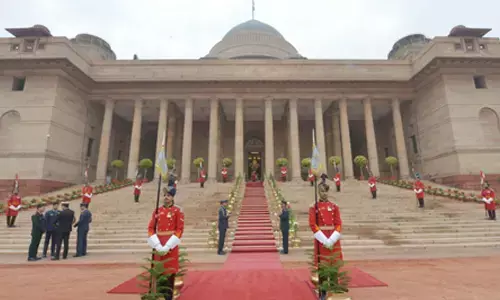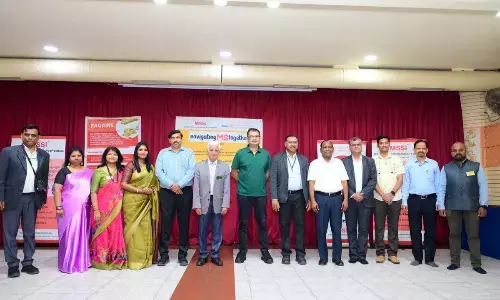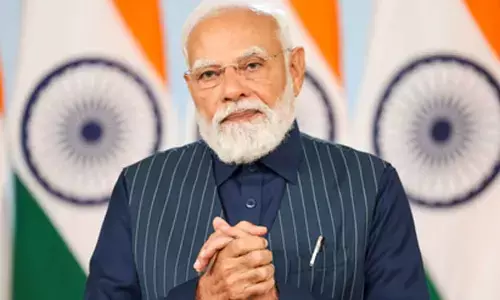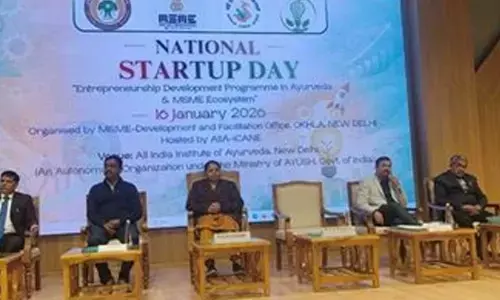New education policy a game-changer for India over the next 20 Years: Kasturirangan
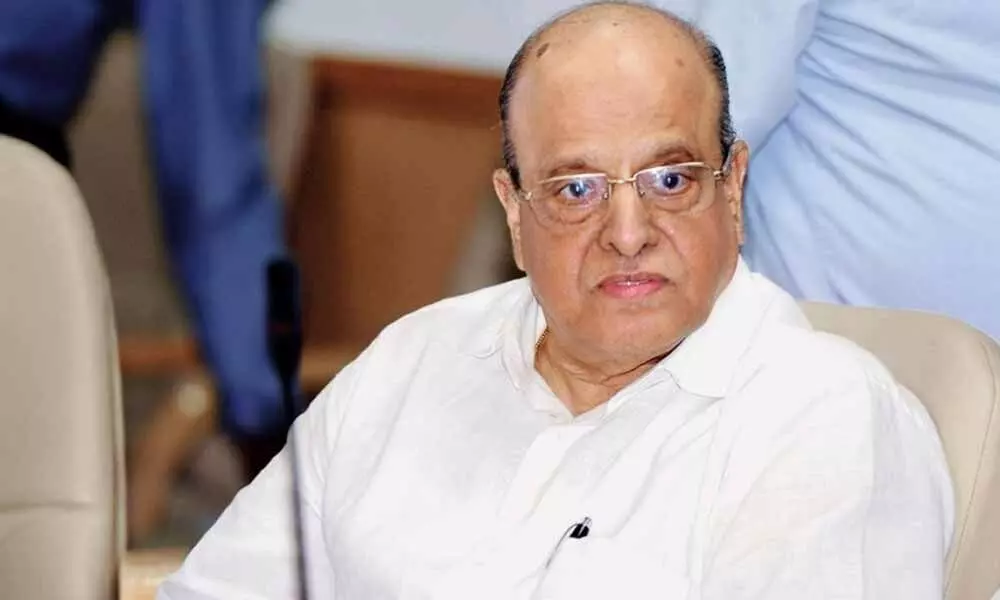
New Education Policy as historic, its draft committee chairman Krishnaswamy Kasturirangan
Terming the Union Cabinet's approval of the New Education Policy as historic, its draft committee chairman Krishnaswamy Kasturirangan on Thursday said
Bengaluru: Terming the Union Cabinet's approval of the New Education Policy as historic, its draft committee chairman Krishnaswamy Kasturirangan on Thursday said it (policy) would be a game-changer for India over the next 20 years.
"It is a significant milestone for education in India from school to college. The policy gives hope for a bright future, as it aims to build quality human resources to sustain the country's socio-economic growth and development," Kasturirangan told IANS here.
Padma Vibhushan Kasturirangan, 79, is a former chairman of the state-run Indian Space Research Organisation (ISRO), former Rajya Sabha member (2003-09) and former member of the now-defunct Planning Commission. He is currently Chancellor of the Central University of Rajasthan and NIIT University. He was also former chancellor of Jawaharlal Nehru University in Delhi and chairman of the Karnataka Knowledge Commission in this tech city.
The Union Cabinet, chaired by Prime Minister Narendra Modi, on Wednesday approved the National Education Policy 2020, making way for large-scale, transformational reforms in school and higher education sectors. As the first education policy of the millennium, it will replace the 34-year-old National Policy on Education (NPE), 1986.
Built on the pillars of access, equity, quality, affordability and accountability, the new policy is aligned to the 2030 agenda for sustainable development and aims to transform India into a vibrant knowledge society and a global knowledge superpower by making school and college education holistic, flexible and multi-disciplinary, suited to the 21st century needs.
"The policy was drafted by specialists, experts and distinguished academicians in diverse fields after brainstorming discussions with all stakeholders across the country," recalled the space scientist, who headed the 9-member committee.
As a blueprint for the shape of educational institutes from school to college over the next two decades, Kasturirangan said though education was a state subject in the past, the policy would have to be jointly implemented by them with the Centre as it is in the concurrent list after Article 42 of the Constitution was amended in 1976.
Expressing satisfaction over the government accepting most of the committee's recommendations, Kasturirangan said the decision to use the mother tongue or local language from class 1-5 was revolutionary, as children will develop skills to learn subjects and thinking faculty to express better.
"Teaching children up to class 5 in their mother tongue is correct and wise, as 85 per cent of the population across the country speak, read and write in their own language, while 15 per cent of the people use English," he asserted.
Hailing the 3-language approach, Kasturirangan said English could also be taught as a third language after the mother tongue and regional language from class 1 to class 5.
"Local language as the medium of instruction till class 5 is important in the early phase of a child's education. The world over, primary education is in the native language of each country or state, as the children learn the art of knowing, thinking and expressing themselves in their mother tongue," he reiterated.
The work on the new policy began during the NDA's first term (2014-19) when Smriti Irani was the Union Human Resources Development minister, by collecting opinions from diverse sections of society. A committee headed by former cabinet secretary T.S.R. Subramaniam was set up to study them.
"Though dramatic changes occurred in the country in the social, political, economic and security policies, education and healthcare were lagging in keeping pace with the modern times," noted Kasturirangan.
When Prakash Javadekar took over as the new HRD minister, the committee sought more time to relook at the education system from primary to college in totality, keeping in view the country's needs.
The policy emphasises on ensuring universal access to school education from pre-school to secondary. It also looks at infrastructure support, innovative education centres to bring back dropouts into the mainstream.
"The policy envisages bringing about 2 crore out-of-school children back into the mainstream. With stress on early childhood care and education, the 5+3+3+4 curricular structure corresponding to ages 3-8, 8-11, 11-14 and 14-18 years will bring the uncovered age group of 3-6 years under school curriculum, as it is the crucial stage for the development of mental faculties of a child," Kasturirangan pointed out.
On foundational literacy and numeracy, the committee chairman said the policy ensured no rigid separation between academic streams, extra-curricular, vocational streams in schools.
"Vocational education starts from class 6 with internships, assessment reforms with 360-degree holistic progress card, tracking student progress for achieving learning outcomes. The policy also envisages the gross enrolment ratio in higher education to be increased to 50 per cent by 2035 for which 3.5 crore seats have to be created across the country."
"Higher education curriculum will have the flexibility of subjects, with multiple entries and exit options with the appropriate certification," Kasturirangan added.








